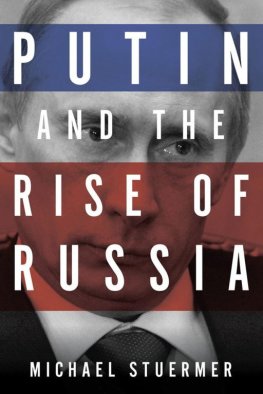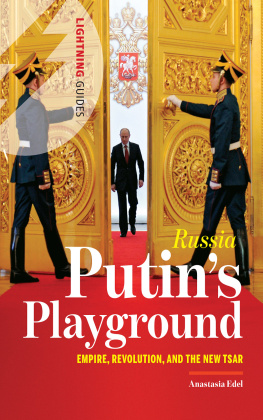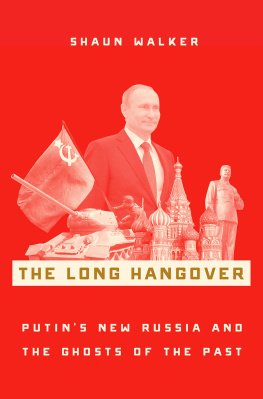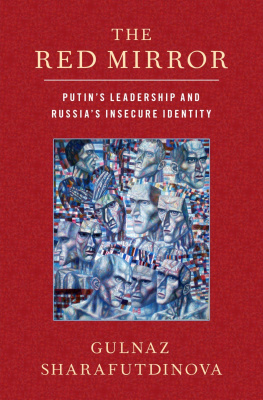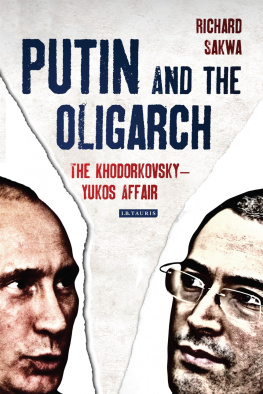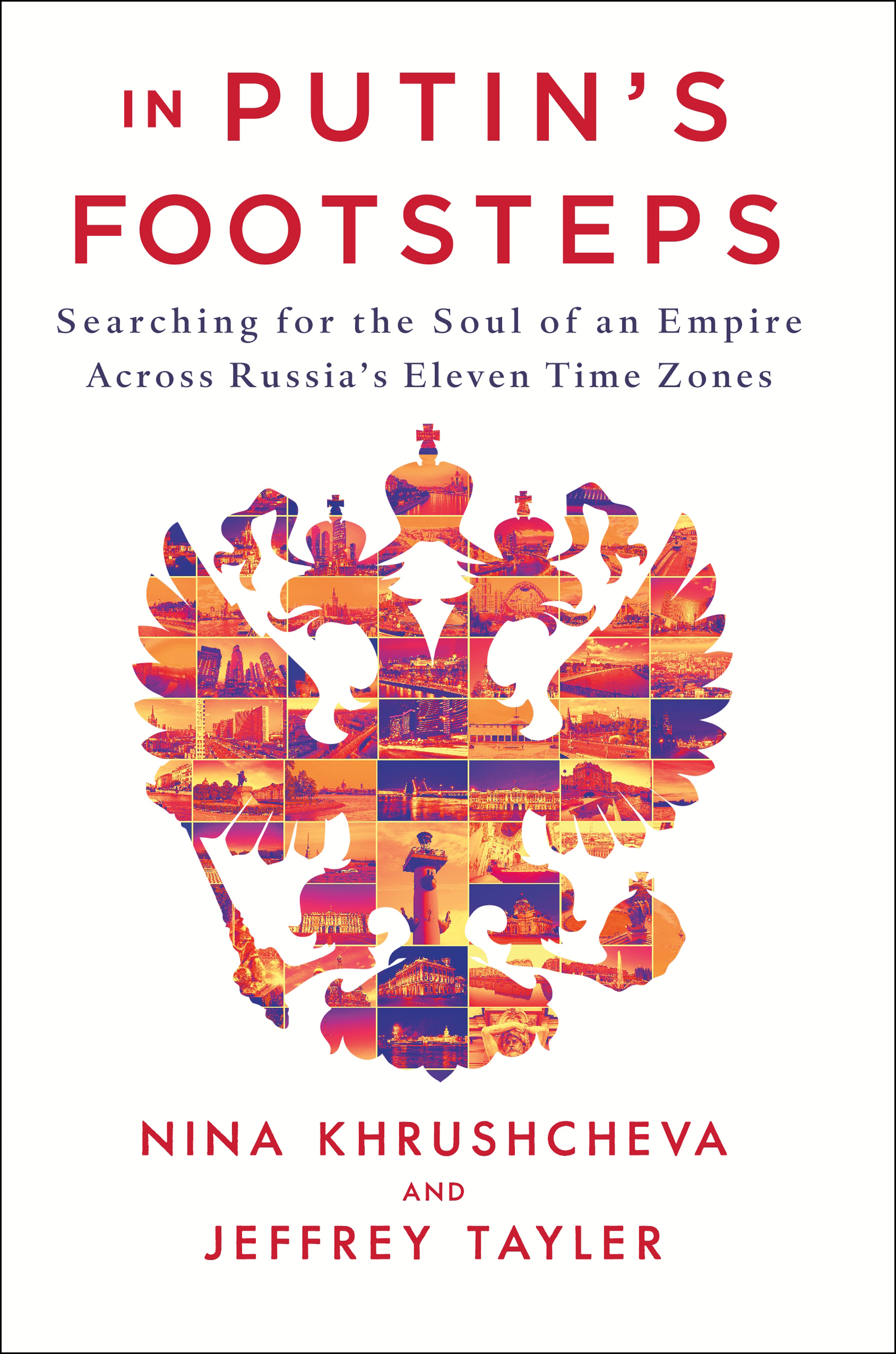The author and publisher have provided this ebook to you for your personal use only. You may not make this ebook publicly available in any way. Copyright infringement is against the law. If you believe the copy of this ebook you are reading infringes on the authors copyright, please notify the publisher at:
We will drive humanity to happiness with an iron hand!
Soviet slogan from the Stalin era
At dusk, a forty-seat propeller plane from the 1970s circles around the islands, pale masses in an indigo sea. One circle, two, and then three. A flight that should take forty minutes has now dragged on for an hour and a half. We cant land.
The pilot announces over the speakerphone: Its the wind. The Solovetsky Islands landing strip is too short. With such a wind, wed be blown right into the White Sea. He pauses, and then requests, in all seriousness, Pray to the Solovetsky Islands that they accept you.
It is a few nights before Christmasthe Russian Orthodox Christmas, that is, which falls in early January. The plane is filled with religious tourists and nuns in black habits, with their hair hidden beneath black kerchiefs, and shod in, surprisingly, posh black hiking boots. Nowadays it is cool to be Orthodox Christian in Russia.
Everyone lowers their eyes and prays.
Ten minutes later the plane, wobbling in the fierce erratic winds, manages to touch down.
Welcome to Solovki (as the Solovetsky Islands are called, in Russian, for short)an archipelago in the White Sea about a hundred miles south of the Arctic Circle. The remote abode of a monastery and a colony of exiles under the czars, a forced labor camp and military barracks under the Soviets, the Solovetsky Islands these days are a Kremlin-patronized religious sanctuary where the past and the present collide.
The landing field terminates by a single-story, gable-roofed blue brick airport waiting hall that abuts a white, onion-domed chapel (converted into an outhouse during the early part of the Soviet era) topped with a gilt Russian Orthodox cross. Waiting is a crowd of bearded, black-clad monks who greet the arriving passengers.
It is three in the afternoon, and the pale orange sun is setting, the violet sky darkening, the cross losing its glint and luster. Mid-winter days last just five hours at this subarctic latitude. (Summer days, in contrast, linger endlessly, with several weeks of sublime white nights ending with the sun rising obliquely, infusing the pale firmament with golden light that eventually gives way to the softest of azures.) Ahead of us the monasterys domes, towers, and crosseslots of crossesrise, almost black against the sky, composing an image fit for a postcard. A postcard, as it happens, from both heaven and hell. For much of the past century, communist red stars topped these Christian domesa violent juxtaposition, a clash between God and Bolshevism. The Bolsheviks murdered, among other political outcasts, scores of monks, nuns, and priests and smashed the bronze bells. The bells chiming here so regularly are in fact of more recent provenance.
Solovki once held the prototypical labor campthe first of, eventually, many that formed a sweeping crescent of outposts of toil and misery across the most inclement parts of the Soviet lands. The Soviet dissident writer Alexander Solzhenitsyn would dub them, collectively, the Gulag Archipelago, in his eponymous magnum opus on prison life during the Stalin decades. Solzhenitsyn served his time in Ekibastuz, now in Kazakhstan, and wrote his semiautobiographical documentary masterpiece in the 1970s. But the metaphor for The Gulag Archipelago title came from the arch of labor camp sites established in these northerly latitudes in the 1920s. The new Soviet government opened the first forced labor camp of its Gulagthe grim acronym standing for the USSRs Chief Administration of Labor Campson these islands where, since the 1500s, the czars had already held their first religious and political prisoners.
Zheleznoi rukoi zagonim chelovechestvo k schastyu (We will drive humanity to happiness with an iron hand) was the Soviet slogan emblazoned on banners once festooning the dirt lanes of the main settlement, Solovetsky. The brutal saying accorded with the violent legend of how humans came to settle the islands in the 1430s. Two angels are said to have beaten to death a fishermans wife because she landed on the islands holy terrain, which God, supposedly, had reserved only for the devout. A legend most likely created by monks, who first came here to establish their refuge for prayer and meditation. What is this legend if not a precursor to communism, with its mix of millennial, quasireligious belief in a dogma and the violence used to enforce it?
Surrounding us is the barren landscape of winterfrozen lakes become vast snowfields, exuding a glowing whiteness in the crepuscular evening light; dark, brooding pine forests; and, above all this, gold crosses, glinting with the faint rays of the dying sun. Yet in summer the sun awakens the sleeping land, invigorating life in the forests and bogs and raising clouds of giant mosquitos that torment all warm-blooded creatures. These creatures used to threaten the sanity and the lives of humans wandering the wilds here unprotected, turning their days into merciless crucibles. They still do.
The locals say, nevertheless, that Cold is the primordial state of Solovki, the islands of utopia and dystopia, both blessed and cursed.
They might as well be talking about all of Russia.
The Kremlin warned that if the West further expands the sanctions, the Kremlin will further increase Putins ratings.
A contemporary Russian joke
On New Years Eve, 1999, journalists in the Russian presidents press pool had a feeling that things were going to change. They were right: the feeble and aging Boris Yeltsin, who could barely board a plane or stand for a fifteen-minute press conference, was about to deliver his End of the Year Address, in which he resigned and ceded power to his prime minister and handpicked successor, Vladimir Putin. Once head of the Federal Security Service (FSB), the post-communist democratic version of the dreaded KGB, Putin was indeed an unusual choice, having served as the head of the government for only a few months. But the forty-eight-year-old ex-spy, who would become the youngest Kremlin leader since the Soviet Unions founders, Vladimir Lenin and Joseph Stalin, had a quiet energy that seemed boundless. As boundless as the geographic expanses contained within Russias elevenyes, eleventime zones.
After taking over from Yeltsin as acting president on the first day of the new millennium, and after winning, by a landslide, presidential elections three months later, Putin, in the year to come, held over a dozen press conferences and traveled to almost two dozen countries and at least a quarter of Russias eighty-nine regions, which are spread out over eleven time zones. Altogether, he was seen in public and on television more often than Yeltsin during most of his eight-year presidency.


